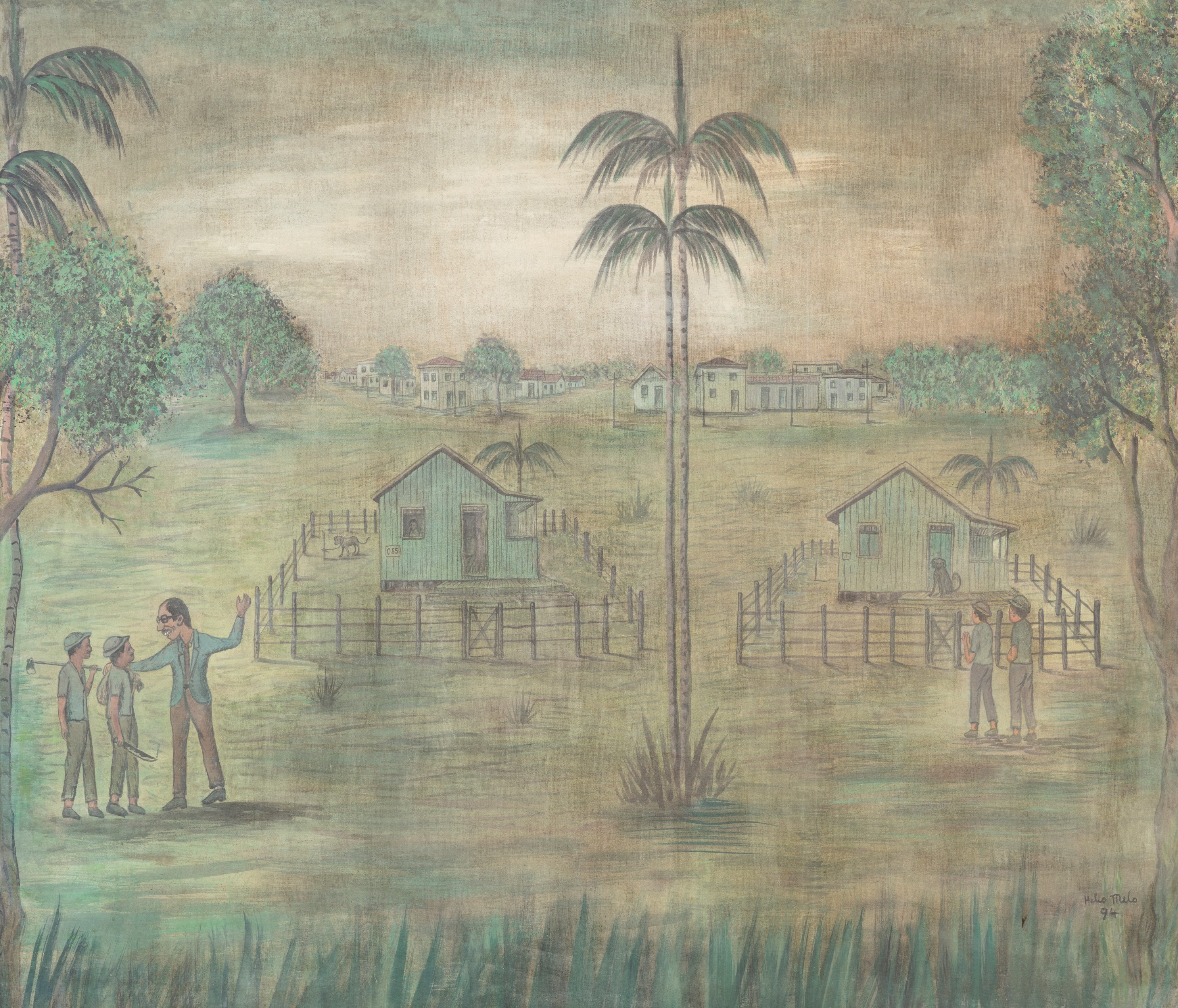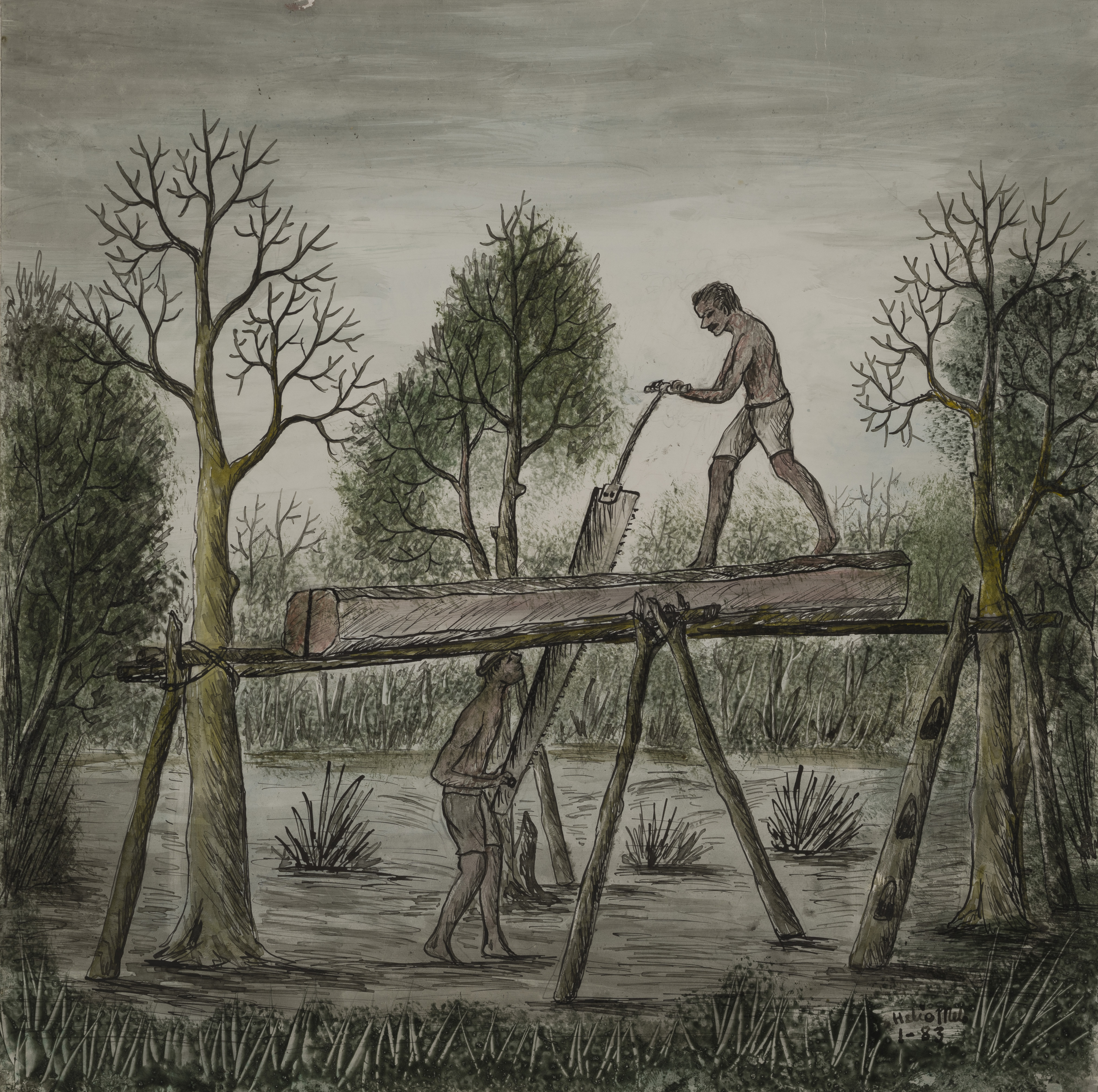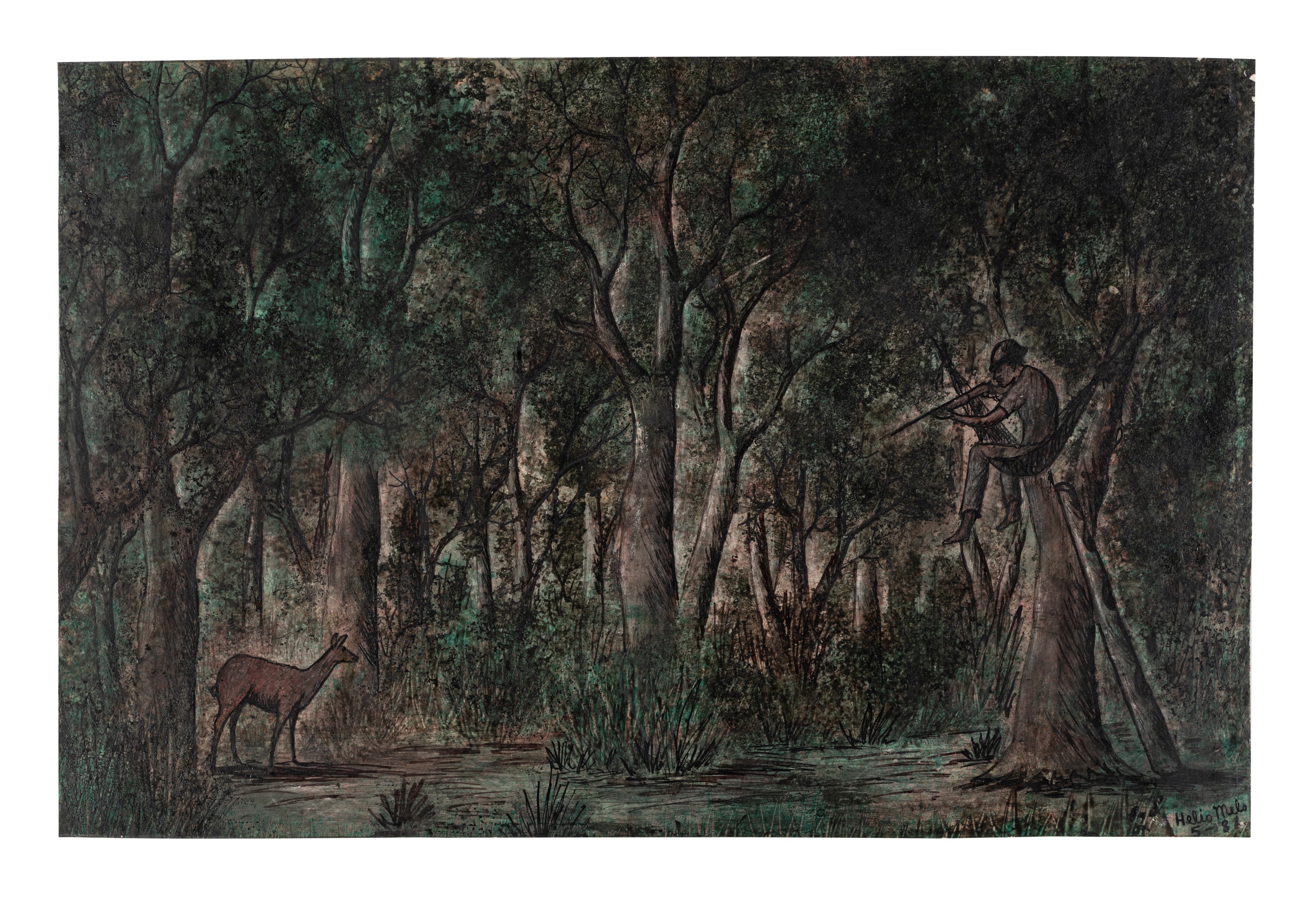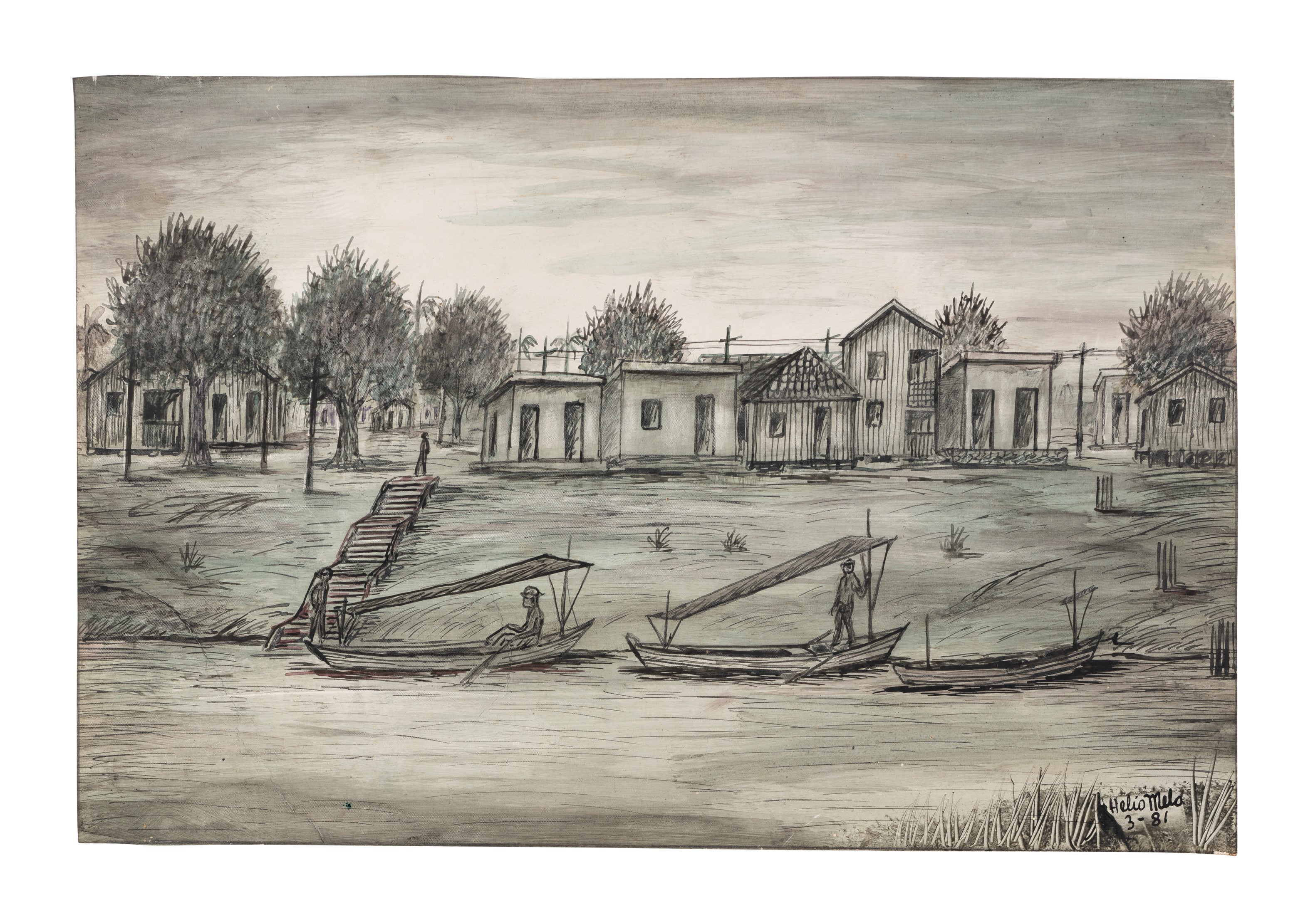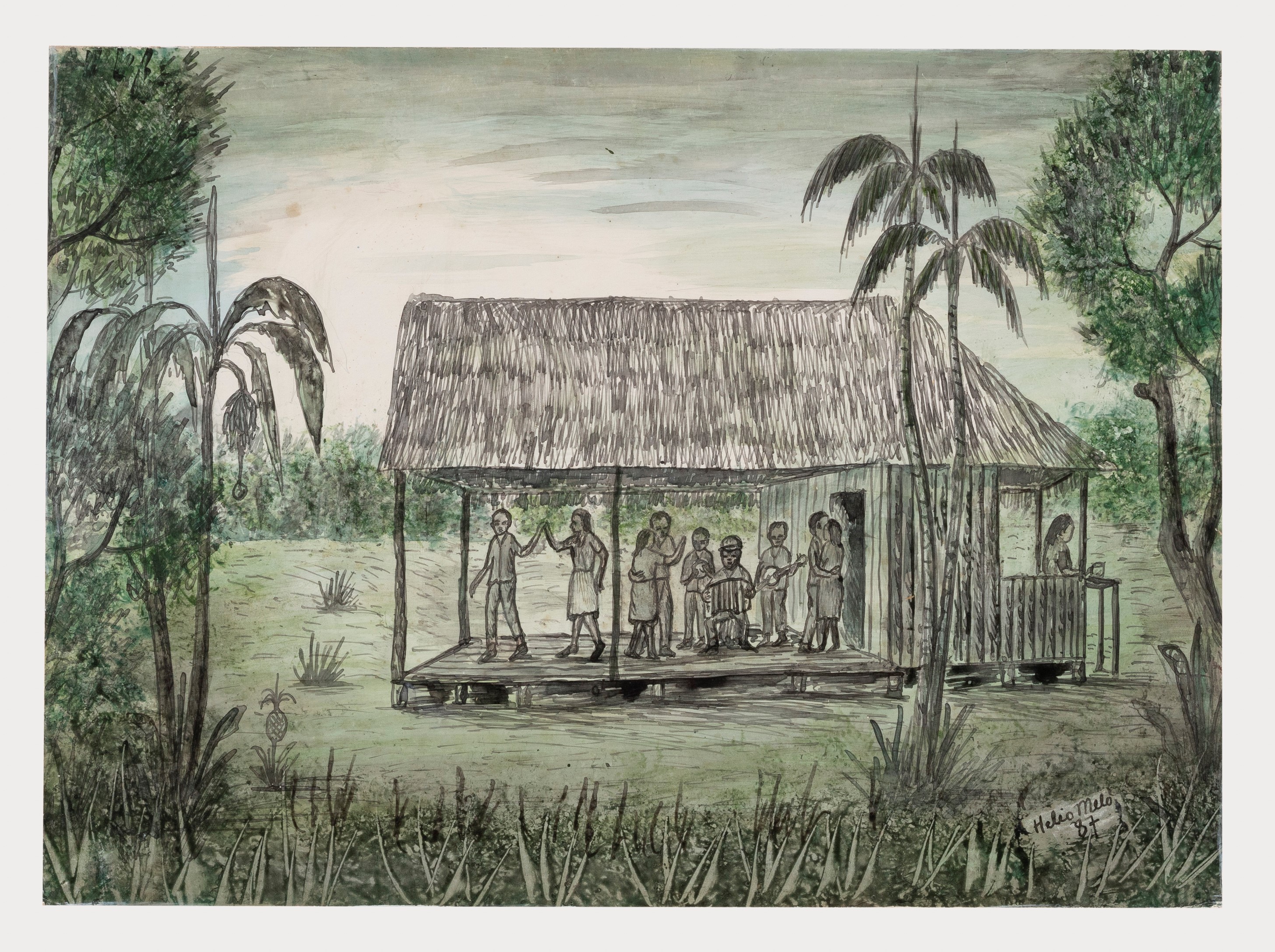Hélio Melo
O cachorro do deputado antes e depois da eleição, 1994
Author:
Hélio MeloBio:
Boca do Acre, Amazonas, Brasil, 1926 - Goiânia, Brasil ,2001Title:
O cachorro do deputado antes e depois da eleiçãoDate:
1994Medium:
Nanquim e extrato de folhas sobre telaDimensions:
138 x 160 cmCredit line:
Doação Ana Dale, Carlos Dale Júnior, Antonio Almeida, 2020Object type:
PinturaInventory number:
MASP.11045Photography credits:
Eduardo Ortega
The work of Hélio Melo portrays the Amazon and reveals the artist’s profound knowledge of and interaction with the forest. Born in the rubber plantation known as Seringal Senápolis, next to River Antimari, in the state of Amazonas, Melo, between the ages of 12 and 33, cut rubber trees to extract latex for a living. At this time, he was already drawing the landscape, including the forest, the fauna and flora, the people who lived in it and the ways of working in rubber plantations. From the forest, he also obtained the greenish pigment with which he began to add color to his works, which were initially made with pencil and liquid India ink only and later incorporated the sap extracted from plants. As well as recording the transformation in the landscape, Melo reflected on the increasingly violent exploitation of the forest and the people living in it. In the painting O cachorro do deputado antes e depois da eleição [The Congressman's Dog Before and After the Election], the landscape is split in half by a palm tree, representing before and after the elections. In the first scene, a candidate for Congress is asking for the vote of two workers, and, in the background, his house looks welcoming, with open doors and windows inviting in those who walk past. Yet, in the other scene, the congressman is no longer there, and the two voters look at the house, which is now totally locked up – they clap to call someone but no one appears. The title turns our attention to the dog: before, it was slender and attached to a collar, but now it is loose, protecting the entrance to the house — it also looks much bigger, suggesting the new wealth secured by its owner after the elections. Through irony and humor, the artist denounces the renewed disregard of Brazilian politicians for their voters; their only interest is profit and power.
—Matheus de Andrade, research assistant, MASP, MASP, 2023
